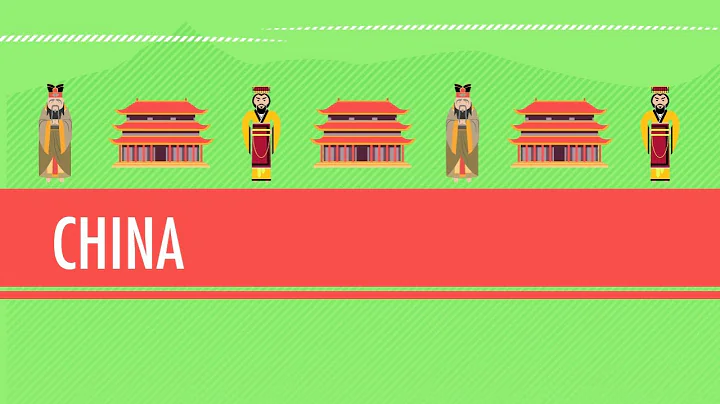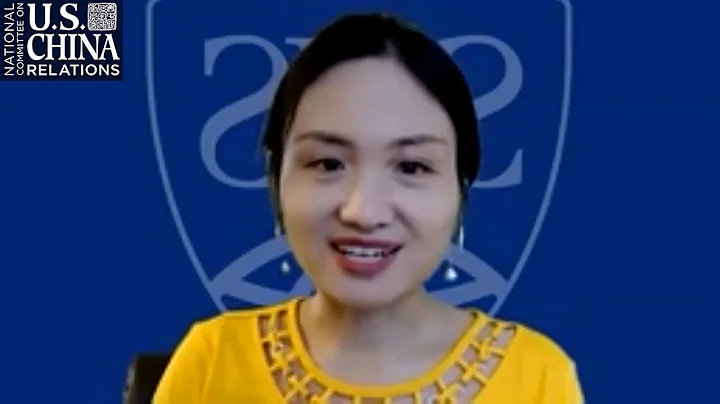

Enforcement is a key link in turning laws on paper into living laws in real life. Looking through this thick book of traditional Chinese legal culture, you can always see many colorful and fascinating stories about the rule of law that are closely related to law enforcement. If we consider it more carefully, we can find that the story carries the gene of rule of law with strong and fair law enforcement, which spans time and space and remains timeless.
The "iron case" caused by a plate of water mill - the origin and continuation of the mountain of law enforcement
In winter November of the second year of Emperor Zhongzong of the Tang Dynasty Shenlong (706 AD), Princess Taiping came to Yongzhou for sightseeing, in a temple I spotted a plate of water mill and liked it very much. This water mill is a millstone driven by water power. It is estimated to be very exquisite in workmanship and fully reflects the wisdom of the ancients. The princess immediately fell in love with the water mill and insisted on keeping it for herself. Without the consent of the monks in the temple, he ordered a group of men to transport the water mill back to his home in Chang'an, the capital. The monks were forced by Princess Taiping's power and dared not speak out. They did not stop her face to face. After she left, they could only report the matter to Yongzhou Sihu Canjun (local official, called Hucao Canjun in Tang Yufu, state name). Sihu joined the army, and the county was called Sihuzuo) where Li Yuanhong lived.
"Yongzhou Sihu joined the army" was not of high rank, but Li Yuanhong immediately accepted this "case of a monk suing a princess caused by a plate of water mill". After Li Yuanhong found out, the water mill was indeed the legal property of the temple and Princess Taiping had no right to occupy it. Therefore, Li Yuanhong sentenced Shuimo to the monks of the temple. This verdict frightened Li Yuanhong's immediate boss, Governor Yong Shi Dou Huaizhen, who always curried favor with the powerful. You know, Princess Taiping was in power at that time. How dare Dou Huaizhen let a small subordinate of hers offend her? In the end, she would definitely not be able to escape the relationship. He immediately ordered Li Yuanhong to change the sentence of Shuimo to Princess Taiping. Li Yuanhong sneered, and without saying a word, he immediately took up his pen and added a sentence that has been passed down through the ages to the original judgment - "Nanshan may be changed, but this judgment will not be shaken." (There is also a saying that "Nanshan can be moved, but this judgment will not be shaken.") ) Later generations condensed this sentence into the four-character idiom "law enforcement is like a mountain", and called the "Nanshan Iron Case" a case that has been decided and cannot be changed. This is where the mountain of law enforcement comes in. Whether Princess Taiping returned the water mill is not recorded in historical materials, but Li Yuanhong rose to great heights and left his name in history. He was also known as Xuanzong of the Tang Dynasty together with Yao Chong, Song Jing, Zhang Shuo, Zhang Jiuling and others. The name of the period. Perhaps in the eyes of the ancients, the outcome of the Shuimo case was not the most important, but the key was to inherit the spirit of law enforcement.
"The law is not noble, and the rope is not bent." This is the true meaning of the spirit of the rule of law. If you do not believe in the rule of law and do not have the determination to adhere to the rule of law, you will not be able to resist temptation and interference in the face of power, money, favors, and relationships. This can already be seen in the traditional rule of law story of Li Yuanhong enforcing the law like a mountain.
In fact, before the emergence of "enforcement as a mountain", the spirit of impartiality in law enforcement has long been praised in the land of China, and has continued in history books. "Historical Records·Biography of Sima Ranju" records: At the end of the Spring and Autumn Period, the Jin Kingdom and the Yan Kingdom invaded the Qi Kingdom. The Qi army retreated steadily, making Qi Jinggong very worried. On the recommendation of Prime Minister Yan Ying, Qi Jinggong worshiped Sima Rangju as a general and ordered him to command the army to the front line. Sima Ranju felt that he was insignificant and had little power, so he asked Qi Jinggong to appoint ministers to supervise the army. Qi Jinggong sent his trusted official Zhuang Jia to serve as the supervisor. After that, Judicial Rangju made an agreement with Zhuang Jia: "We will meet at the military gate at noon on the same day" (we will gather at the camp gate at noon the next day to set off). However, Zhuang Jia was so arrogant that he did not come until the evening of the next day. Late. Sima Ranju asked the military judge how he was late? The military judge said: "You should be beheaded!" Zhuang Jia sent people to ask Qi Jinggong for help. Before the sent people came back, Sima Ranju had ordered Zhuang Jia to be beheaded in public. After this incident, "all the soldiers of the three armies were shaken."憆."In addition, Warring States Zhao She obeyed the law and bravely killed Pingyuan Jun nine servants, Western Han Zhang Shizhi "enforced the law like a mountain, and did not follow the will of the emperor", Eastern Han "Strong Order" Dong Xuan Not being afraid of the powerful in law enforcement and so on are the expectations and praises of the ancients for the spirit of justice in law enforcement.
The ancients not only had practical but also theoretical thinking about justice in law enforcement, which profoundly pointed out the disadvantages of not following the law and unclear law enforcement. This is another story, related to the familiar Bao Qingtian . In the seventh year of Qingli in the Northern Song Dynasty (1047), there was a severe drought in the Spring and Autumn Period, and people were in dire straits. Song Renzong issued two consecutive edicts to "sin the self", but the disaster did not occur. Relief. This year, Bao Zheng went to Shaanxi as a transit envoy. He was deeply shocked by what he saw along the way, so he wrote "Zhaozi in the Shangdian" and submitted it to the emperor -
"Those who obey the law are the masters of the people, and the country The key to controlling chaos and safety is not to be careless. In recent years, the rules of rewards and punishments may still be based on the rules, and people know that the laws are not trustworthy, so why should rewards and punishments be discouraged? ... I look forward to His Majesty's decision on important matters and trust in the gentleman. Those who are rewarded must bear their merits and cannot be spared; those who are punished must bear their crimes and cannot be spared. The evil and sycophants will be deposed even if they are close, and the loyal and upright people will be collected even if they are far away. Once the laws are implemented and the disciplines are correct, there will be no country that cannot be ruled and no people that cannot be transformed. It is just a matter of your Majesty's efforts. "
roughly means: As long as laws are carefully implemented and trusted by the people, chaos will subside and the world will be easy to govern. As long as laws are smooth and disciplines and customs are naturally pure, then there will be no country that cannot be governed well and no people that cannot be educated. Bao Zheng deeply felt that the drought was not terrible, but what really made people think deeply was that "people knew that the laws were not trustworthy." Based on this, Bao Zheng made it clear that he should "balance the world with the law" and "give orders and they must be implemented." General Secretary Xi Jinping once quoted in the article " Eradicating Poverty " Political Miscellaneous Articles from "Shangdian Zhazi" that "if the laws are implemented and disciplines are correct, there will be no country that cannot be governed and no people that cannot be reformed."
"Law enforcement is like a mountain." Semantic transformation and implementation paths in comprehensively governing the country by law
“Laws alone are not enough on their own. "The vitality of the law lies in its implementation. In the context of comprehensive rule of law, law enforcement has new connotations and expressions, such as strict law enforcement, ensuring strict implementation of laws, strict civilized and fair law enforcement, etc. General Secretary Xi Jinping pointed out: "Now, in our society, Many problems that occur in life are sometimes caused by insufficient legislation and unfounded norms, but more often they are caused by failure to follow the law, failure to regulate it, and even abuse of power for personal gain, bending the law for personal gain, and undermining the rule of law. "To promote strict law enforcement, the focus is to solve outstanding problems such as irregular, lax, opaque, uncivilized, inaction, and random behavior in law enforcement. To comprehensively promote the rule of law, we must ensure the strict implementation of the law, and we must learn from the essence of traditional Chinese legal culture such as law enforcement. Absorb nutrients, firmly grasp the professional conscience, adhere to the rule of law, institutional constraints, open operation and other aspects, and persist in strict, civilized and fair law enforcement.
Law enforcement should be an indispensable professional conscience for law enforcement. An important reason for severe and unfair justice is the lack of proper professional conscience. In many cases, it does not require much legal expertise to determine right and wrong based on conscience, but the handling of some cases makes the boundary between right and wrong very unclear. Law enforcement is first of all a kind of professional conscience, which is closely related to professional ethics. As a law enforcer, the most important professional conscience is to enforce the law for the people. We should make the strengthening of fair and honest professional ethics a required course, and educate and guide law enforcement officers to conscientiously use professional ethics. We must realize that injustice and incorruptibility are the greatest shame, and we must have zero tolerance for things that are deeply hated by the people, and zero slack for things that are urgently needed by the people. We must establish a strong and upright atmosphere of punishing evil and promoting good, and enforcing the law.
Believe that the rule of law should be the law enforcer. Must have basic qualities. A strong law-abiding nation will be strong. If we want to enforce the law strictly and administer justice fairly, we must believe in and adhere to the rule of law. It is impossible for any country or system to completely isolate law enforcement and judicial personnel from society. Interference with law enforcement and justice exists objectively to a certain extent. The key is to adhere to the rule of law and be able to eliminate all kinds of interference when encountering such situations.The law must be obeyed and the rule of law must be believed in, otherwise it will be in vain. It is necessary to cultivate the spirit of the rule of law and build a strong belief in the rule of law as an important part of the construction of a rule of law culture, and guide law enforcement officers to internalize the rule of law into political beliefs and moral cultivation, and externalize it into codes of conduct and conscious actions. It is necessary to educate and guide law enforcement officers to believe in the rule of law, adhere to the rule of law, stand firm, straighten their spines, obey only facts and laws, be impartial and impartial, enforce the law impartially, and be law enforcement officers who know, understand, abide by, and protect the law. In particular, leading cadres at all levels among law enforcement officers must strengthen their awareness of the rule of law, take the lead in respecting the law, learning the law, abiding by the law, and using it, and set an example for system implementation. It is necessary to adhere to the basic strategy of governing the country according to law and the basic methods of governing according to law, improve the ability to use legal thinking and legal methods to deepen reform, promote development, resolve conflicts, maintain stability, and respond to risks, and improve governance capabilities on the track of the rule of law.
Institutional constraints should be an irreplaceable and important part of law enforcement work. We must rely on systems to ensure this. Separation walls and high-voltage lines must be set up in all aspects of law enforcement and case handling. Anyone who violates the system will be given the severest punishment. Those who constitute a crime must be held criminally responsible in accordance with the law. It is necessary to use institutional constraints to promote law enforcement officers to fully perform their functions in accordance with the law, insist that statutory duties must be performed and cannot be performed without authorization by law, improve decision-making mechanisms in accordance with the law, improve law enforcement procedures, strictly enforce law enforcement responsibilities, and achieve strict standards, fair and civilized law enforcement. We must persist in promoting justice through openness, ensuring integrity through transparency, and enhance the awareness of proactive disclosure and proactive acceptance of supervision, so that there is no room for secret operations and judicial corruption cannot hide. It is necessary to strengthen the constraints and supervision of administrative power, establish an authoritative and efficient administrative system according to law with unified power and responsibilities, strictly enforce law enforcement qualifications, improve law enforcement procedures, establish and improve the benchmark system for administrative discretion, and ensure the fairness and effective implementation of the law.
Source: Xuexue Qiangguo

Editor: Ma Qian Wang Ning Chen Qing
Review: Hu Zhiyong Fu Jiacai
points to share
points to collect





![Know Your Rights [Traditional Chinese] - DayDayNews](https://i.ytimg.com/vi/NcT7WaIkESM/hq720.jpg?sqp=-oaymwEcCNAFEJQDSFXyq4qpAw4IARUAAIhCGAFwAcABBg==&rs=AOn4CLClGUlkL0D0O6KrJtb3cz_4AcjGFg)















